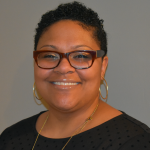Article describes area history
Published 1:02 pm Tuesday, March 26, 2019
Prince Edward County Commonwealth’s Attorney Megan Clark and Longwood University President W. Taylor Reveley IV recently wrote an article about the history of Farmville and Prince Edward, and the turbulent journey to racial reconciliation, that was published in U.S. News & World Report.
The commentary, published March 12, described the history of Prince Edward and Farmville, from the early 1800s to the current day, and how its legacy of racism and civil rights can contribute to a current conversation on racism and reconciliation.
The article first describes Israel Hill in Prince Edward, one of the first free black settlements in the South. From there, the article details the Civil War’s impact in Farmville.
“During the 20th century, Prince Edward was the center both of one of America’s worst episodes of massive resistance and one of the bravest moments of the Civil Rights struggle,” the article cited. “In 1951, the student-led strike at Moton High School, organized by then-16 year old Barbara Johns, produced the majority of plaintiffs in Brown v. Board of Education. The public schools, however, were closed for five years beginning in 1959 rather than integrated. And yet it was here also, four decades later, that a majority of voters opted to make Douglas Wilder the first African-American to be elected governor in any state in all of American history – yes, that happened in Virginia.”
Concerning why Clark and Reveley chose to focus the article on Prince Edward’s history, Reveley said in an interview that “I think both Megan and I have always felt that the history of Prince Edward, including its consequential role in civil rights history and American history more broadly, is a story the whole country could benefit from knowing more about.”
Reveley said the article has received positive feedback, and said it was informative for people less familiar with the area, and rang true for people who currently or had previously lived in the area.
“I hope readers will benefit from the joint perspective of two people with deep roots in this community, which is at the same time both distinctive and very much reflective of Virginia and the country as a whole,” Reveley said. “I hope our particular experience with the hard work of reconciliation might be of some practical use. And I hope reading the piece will cause people, in this age of hot takes and instant outrage, to pause and take in some deeper and more nuanced historical perspective than is common these days.”







